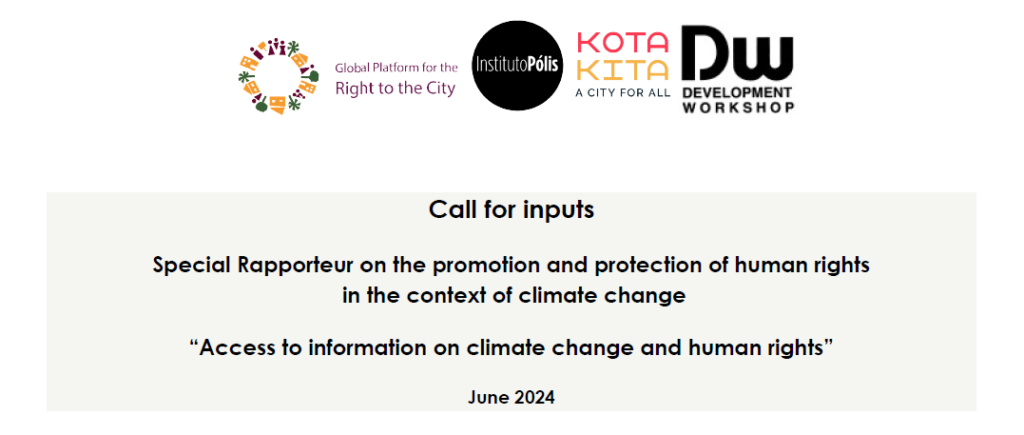
In June 2024, the Global Platform for the Right to the City (GPR2C) members, notably Instituto Pólis (Brazil), Kota Kita (Indonesia) and DW Angola submitted contributions to the “Special Rapporteur on the Promotion and Protection of Human Rights in the context of Climate Change”. The mandate of the rapporteur was established by the 48th session of the United Nation Human Rights Council, in 2021. The requested inputs were centered on the access to information on climate change and human rights and would support the elaboration of the rapporteur’s thematic report for the UN General Assembly 79 session that will be held in September 2024.
| To read and download the complete contributions to the call on access to information on climate change and human rights, click here. |
The GPR2C members’ contributions highlighted the civil society’s difficulties and barriers, mainly to the most vulnerable communities, in accessing information on climate change and human rights, and how this can harm their quality of life and capacity for climate adaptation.
The lack of information access occurs due to a diverse combination of aspects related both to the production and diffusion of information:
Production of information:
- Lack of collection and production of climate change and human rights information at the territorial level.
- Lack of qualitative information.
- Lack of disaggregated data, mainly related to gender, race and class.
Diffusion of information:
- Language barriers – information usually produced only in English and in written formats.
- Use of technical language and jargon.
- Digital inaccessibility – lack of internet connection and digital equipment.
- Absence of transparency mechanisms of governmental bodies and private actors.
As examples of initiatives that could minimize this context, partner organizations indicated methodologies that they have been implementing in their own countries, all of them participative and community-based: Kota Kita suggested the “Participatory Climate Change Vulnerability Assessments (CCVA)”, DW Angola the “Participatory Risk Mapping” and Instituto Pólis the “Reporting Missions”.
| To read and download the complete contributions to the call on access to information on climate change and human rights, click here. |




